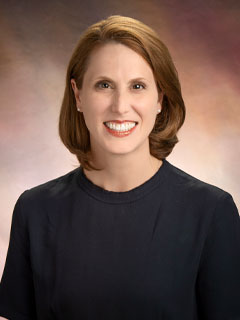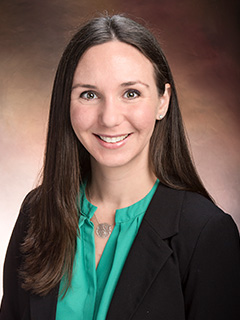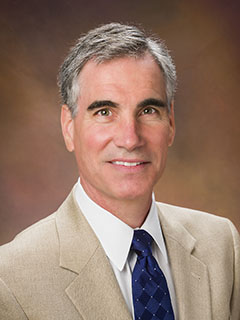HOW CAN WE HELP YOU? Call 1-800-TRY-CHOP
In This Section
FLT3 CAR T-cell Immunotherapy, Lymphatic Conference, Cellicon Valley, Pediatric Heatstroke
We’re kicking off our July news roundup with a recap of the Third Annual Lymphatic Disorder Conference and Cellicon Valley ’23, two events that featured some of the best and brightest research scientists from Children’s Hospital of Philadelphia. In addition, a phase 1 clinical trial in cancer immunotherapy and translational osteosarcoma research received crucial funding, a CHOP researcher won an early career grant for epilepsy studies, and a new survey analyzed caregiver attitude toward pediatric vehicular heatstroke.
CHOP Receives $1 Million From Pediatric Cancer Foundation for Phase 1 Clinical Trial
CHOP received $1 million from the Pediatric Cancer Foundation to fund a planned first-in-human phase 1 clinical trial led by Sarah Tasian, MD, attending physician in the Division of Oncology, to study a new immunotherapy that targets the FLT3 receptor protein in high-risk pediatric leukemias.
“Our research team has a strong track record of bench-to-bedside translation of CAR T cells for high-risk pediatric leukemias and is uniquely poised to undertake this challenge,” Dr. Tasian said. “Because of the funding provided by Pediatric Cancer Foundation, we can now work to translate our FLT3 CAR T-cell immunotherapy from promising results in the laboratory to the clinic. We hope that this clinical trial will have significant potential to credential a promising new immunotherapy against a shared target in two major types of high-risk childhood leukemias.”
Although CAR T-cell immunotherapies that target the CD19 protein in acute lymphoblastic leukemia (ALL) cells have been effective in overcoming chemotherapy resistance, infant and childhood high-risk ALL with KMT2A genetic rearrangements are more likely to change into acute myeloid leukemia (AML) after CD19 CAR T-cell immunotherapy, which usually makes them incurable.
Working with in vitro and in vivo models of the disease, Dr. Tasian’s team demonstrated how FLT3 CAR T cells attacked and killed both KMT2A-rearranged ALL and ALL that had turned into fatal AML after CD19 CAR T-cell treatment of the patient.
Learn more about the grant in this CHOP News Release.
Fight Osteosarcoma Together Super Grant Funds Osteosarcoma Research at CHOP
A new three-year grant totaling $1.5 million in joint funding will support research by Patrick Grohar, MD, PhD, director for Translational Research with the Center for Childhood Cancer Research at CHOP, who is studying how the MYC gene makes osteosarcoma aggressive.
Few targeted agents have successfully translated to the clinic to treat osteosarcoma, the most common malignant bone tumor among children, adolescents, and young adults. This bone cancer affects approximately 400 children younger than age 20 every year in the United States.
“My team has a history of translating therapies to pediatric bone tumor patients, and are now seeing responses in the clinic,” Dr. Grohar stated in a CureSearch for Children’s Cancer press release. “The work proposed has the potential to be highly impactful for the patients we serve. Our group is honored and humbled to have been selected for this award.”
The Fight Osteosarcoma Together Super Grant is a joint funding award with St. Baldrick’s Foundation, CureSearch, Battle Osteosarcoma, Michael and April Egge, The Osteosarcoma Collaborative, and the Zach Sobiech Osteosarcoma Fund of Children’s Cancer Research Fund.
Read more in the CureSearch press release.
CHOP Hosts Successful Third Annual Lymphatic Disorder Conference
CHOP held its Third Annual Lymphatic Disorder Conference to celebrate and share the collaborative innovations making breakthroughs in the field. Attendees and presenters arrived from around the world to engage in panel discussions and lectures that emphasized the importance of a multidisciplinary approach to lymphatic disorders for improved patient care and outcomes.
Assistant Professor of Pediatrics at CHOP and the Perelman School of Medicine at the University of Pennsylvania Laura Vella, MD, PhD, shared her presentation titled “Lymphatics: A Potential Target in Immunological Diseases,” which focused on lymphatic interventions to study immune cell trafficking. Other experts from various specialties, including neurology, surgery, and pulmonology among others, imparted their expertise on lymphology practice and treatment, pulmonary lymphatic dysfunction, and advances in peripheral lymphatic identification and treatment options.
Key takeaways included national and international collaboration as critical to advancing understanding of lymphatic disorders and improving patient outcomes worldwide, and that patient-centered care, with an emphasis on patient empowerment, should be at the forefront of clinical practice and research.
Learn more about the conference held June 2 in this CHOP News Release.
At Cellicon Valley ’23, CHOP Experts Imagine the Future of Cell and Gene Therapies
More than 10 years after Emily Whitehead became the first pediatric patient in the world to receive chimeric antigen receptor (CAR) T-cell therapy, the treatment has revolutionized medicine. Now, scientists are driving the field even further forward, as they consider how to make gene and cell therapies safer, more effective, and more accessible.
That was a central theme at Cellicon Valley ‘23, a three-day educational symposium that brought together researchers and medical professionals from around the country to discuss new strategies for optimizing and improving CAR T-cell therapies. Penn Medicine and Children’s Hospital of Philadelphia – home to the first FDA-approved cell and gene therapies – co-hosted the event.
“It’s been over a decade now since the treatment of Doug Olson with CAR T-cells for chronic lymphocytic leukemia, the treatment of Emily Whitehead with CAR T for acute lymphoblastic leukemia, and the treatment of patients with Leber congenital amaurosis with RPE65 gene therapy — all turning points in the history of medicine,” said Joseph W. St. Geme, III, MD, physician-in-chief and chairman of the Department of Pediatrics at CHOP, during opening remarks on Thursday.
“This symposium represents an opportunity,” he added, “to view this progress, to share ideas, and to crystalize plans for next steps and future advances, setting the stage for the next decade.”
The conference covered the current application of CAR T-cell therapy, challenges and opportunities for equitable patient access, the latest targets and technologies for CARs, and recent advances in cell therapy for solid tumors, among many other topics.
Among the conference’s featured speakers were internationally renowned experts in the gene and cell therapy space, including Penn’s Carl H. June, MD, and CHOP’s Lindsey George, MD; Katherine A. High, MD, PhD; Timothy S. Olson, MD, PhD; and David T. Teachey, MD.
Pulitzer Prize-winning oncologist and author Siddhartha Mukherjee, MD, DPhil, welcomed attendees on Wednesday evening with a special lecture on his new book, “The Song of the Cell: An Exploration of Medicine and the New Human.”
American Epilepsy Society Funds Early Career Research for CHOP Scientist
The American Epilepsy Society (AES) selected 25 early career scientists to receive over $1.1 million in research grants and fellowships. Funded projects cover all aspects of epilepsy research, from basic science to translational and clinical research.
Mentored by Ingo Helbig, MD, in the Division of Neurology at CHOP, pediatric epilepsy fellow Jillian McKee, MD, PhD, received the AES Research Training Fellowship for Clinicians, funded at 50% by Pediatric Epilepsy Research Foundation and 20% by SYNGAP Research Fund, for her research on reconstructing the longitudinal disease history of SYNGAP-1 related intellectual disabilities. SYNGAP-1 related disorders often include recurrent seizures and delayed development of speech and motor skills. With this funding, Dr. McKee hopes to facilitate precision therapy research for new treatments.
The Research Training Fellowship provides mentored support for clinical fellows or junior clinical faculty with up to $51,000 for stipend and travel support, and one year of AES membership.
See the AES announcement to learn more about the awards.
New Study Analyzes Caregiver Attitudes Toward Pediatric Vehicular Heatstroke
A new study conducted by CHOP researchers is the first to analyze scenarios in which children may be left in hot cars and survive, and which caregivers are most at risk for engaging in this behavior.
Despite an increase in preventative measures over the years, a child dies of heatstroke in a vehicle approximately once every 10 days. Data from 2019 indicated that 53 children died in the United States as a result of being left in hot vehicle, which is one of the highest incident rates in the last 20 years.
Lead study author and research scientist in the Center for Injury and Prevention, Emma Sartin, PhD, MPH, and her colleagues surveyed 1,500 caregivers to understand how caregivers perceive their own risks and attitudes toward prevention strategies. Eighty-eight percent of those surveyed indicated that they do not leave their children alone in vehicles for any amount of time, and few respondents (12%) believed they were at any risk for their child suffering from heatstroke. However, most caregivers described negative and possibly judgmental views of those who were at risk of endangering their children.
“These findings support the idea that most caregivers believe that something like in-vehicle heatstroke couldn’t happen in their families, an idea which may actually increase risks,” Dr. Sartin said. “Yet our results also suggest that there is a substantial number of caregivers who are willing to change behavior if the message is framed positively and not based on threats or scare tactics. This is important insight to help us identify new ways of preventing these tragic deaths from ever taking place, as well as which caregivers may be at higher risk.”
Learn more in Accident Analysis & Prevention and in this CHOP News Release.
ICYMI
Catch up on our headlines from our June 23 In the News:
- U.S. News & World Report Names CHOP One of Best Children's Hospitals in the U.S.
- Mechanistic Molecular Immunology Researchers Develop Stable MHC-I Molecules
- CHOP Panelist Discusses Cloud-based Open Science Models at Washington, DC, Summit
- Climate Change Model Predicts Increase in Kidney Stone Cases
Keep up with our news, stories, and updates in real time by following us on Twitter, LinkedIn, or Instagram. Meet the minds behind the science in the Bench to Bedside podcast. Or subscribe to our newsletter to get an email sent every other Friday by signing up here.






